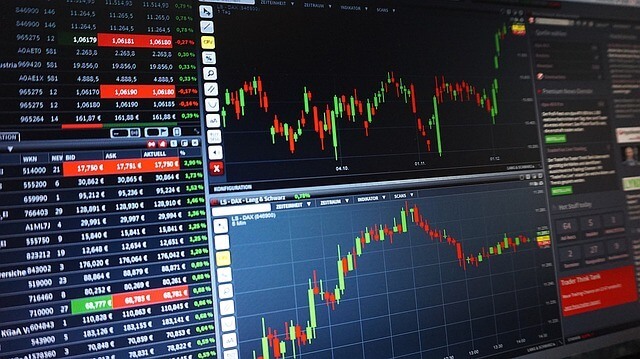Key Australian Events: Their Ripple Effect in the Currency Arena
Foreign exchange, or forex, is a teeming marketplace where fortunes are earned and lost on the basis of traders’ abilities to foresee and respond to developments across the world. There are several opportunities for astute traders to profit from the ensuing currency changes due to the abundance of high-impact events on the Australian economic calendar. With the help of a savvy forex broker, you may improve your trading tactics and profits by anticipating the effects of such events.
As a leading exporter of commodities and a powerful economy in the Asia-Pacific, Australia is constantly in the news regarding currency fluctuations. The Australian Dollar (AUD), sometimes known as the “Aussie,” reacts strongly to news of economic data releases and policy announcements from Australia. These moments serve as turning points that can shape traders’ approaches to the market.

Image Source: Pixabay
The Reserve Bank of Australia’s (RBA) monetary policy statements are highly anticipated. Interest rate choices and the central bank’s economic forecast fall under this category. Given the importance of interest rates in determining a currency’s allure to international investors, unexpected changes can have a profound effect on the value of the AUD. When interest rates rise, the Australian dollar may strengthen because of the higher yields they provide, while when they fall, the currency may weaken. Trading attitudes can also be affected by forward guidance or statements made about the Australian economy, in addition to the rate decisions themselves.
The monthly release of employment data also has a substantial impact on the AUD. The Australian dollar tends to rise when the economy is doing well, which can be an indication of robust employment growth. Conversely, if unemployment rates rise faster than predicted, it could lead to a pessimistic outlook for the AUD. These data releases can be the foundation of short-term trading strategies for traders, especially those working with a forex broker.
Trade balance numbers, which reflect the difference between the country’s export and import values, are of great importance because of Australia’s prominence as an exporter of commodities including iron ore, coal, and gold. Strong global demand for Australian commodities may be indicated by a trade surplus, when exports surpass imports. The value of the AUD rises as a result. However, a deficit may cause a decline in the value of the currency due to fears of dwindling demand or economic difficulties.
Another essential statistic is inflation data, which has far-reaching effects on monetary policy and, by extension, currency values. Long-term forex strategies must account for this information because a major inflation rate deviation from the RBA’s target could indicate a policy shift.
Traders need to keep an eye out for high-impact occurrences outside of the usual stream of data. These can vary from changes in global commodity prices to political events like elections or surprise policy announcements. The demand for Australian exports can be negatively impacted by factors such as geopolitical tensions in a key trading partner or abrupt global economic downturns, both of which would have an effect on the value of the AUD.
A broker’s advice can be quite helpful in this ever-changing market. Insights that may not be readily obvious can be provided by brokers who have their fingers on the pulse of world events and a thorough understanding of market mechanics. The appropriate broker can provide traders an edge by helping them decipher the nuances of an RBA announcement or the broader ramifications of a trade deficit.
The constant flow of economic data and events that affect currency values contributes to the forex market’s dynamic nature. Understanding and taking advantage of high-impact Australian economic events can be a game-changer for anyone trading the AUD or any AUD-paired currencies. Keeping an eye on the market, knowing the basics of economics, and consulting a reliable broker are all necessities. For those who are ready to put in the work, however, the Australian economic calendar’s many twists and turns present golden opportunities.

Comments